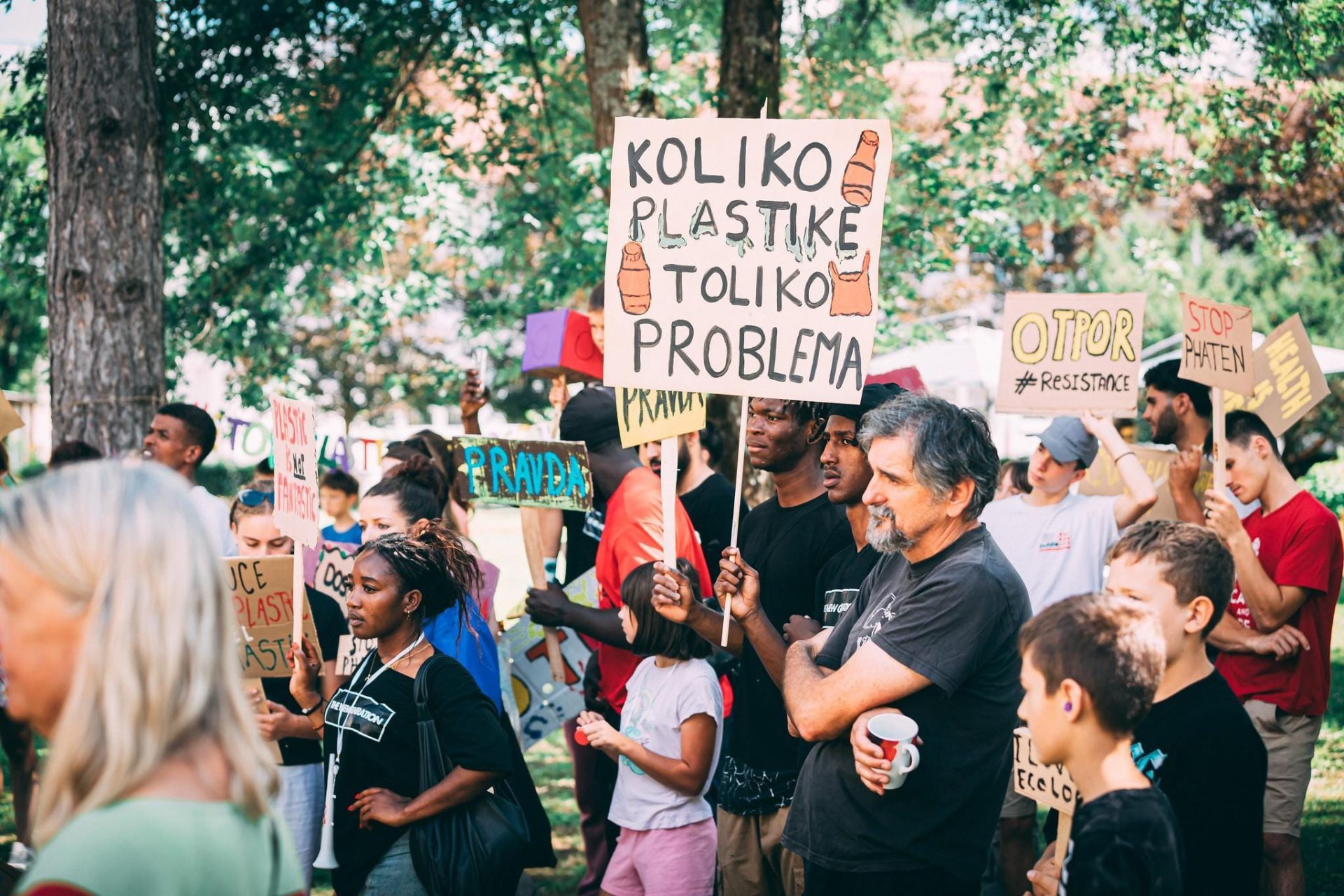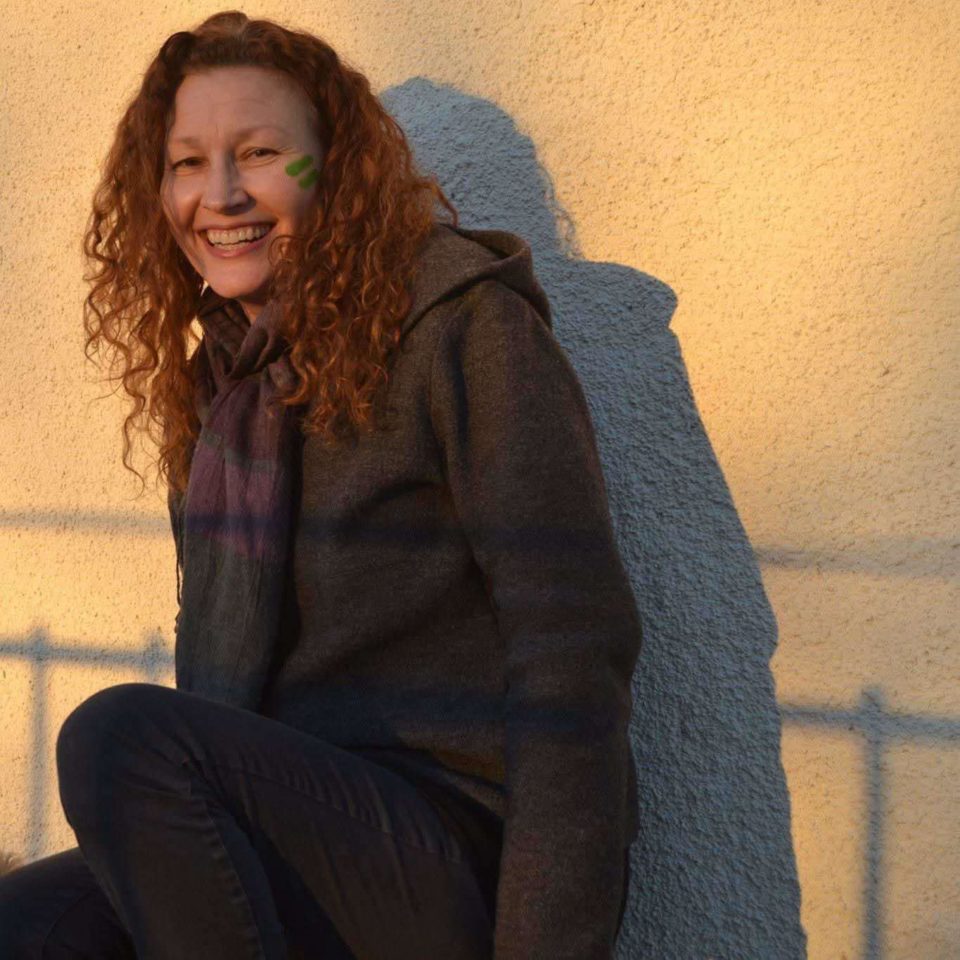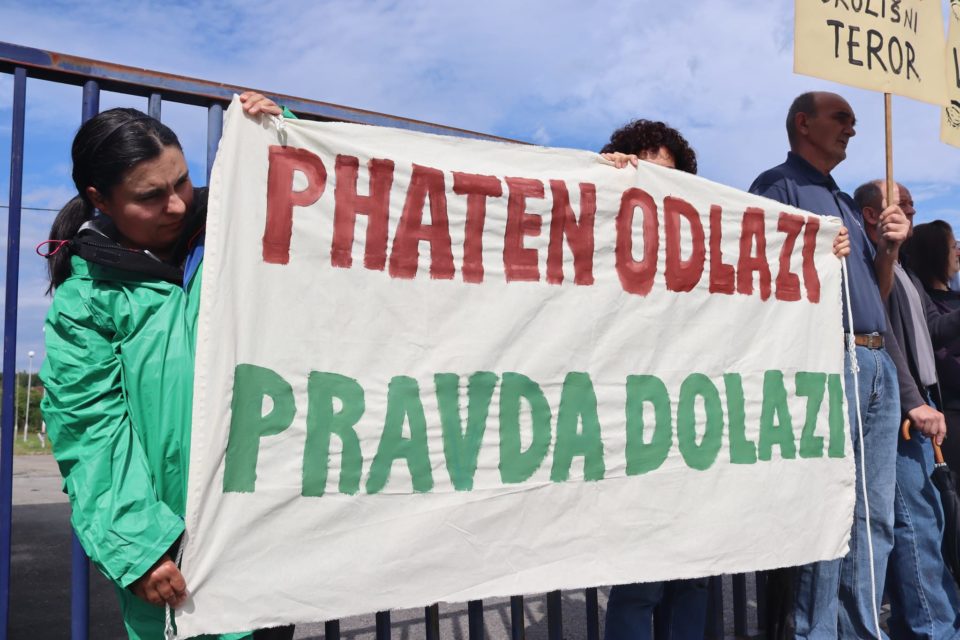
After obtaining a PhD in Psychology in the United States, Maja Turniški’s life path took her to Vrginmost in Gvozd municipality, Croatia.
There, she provides psychosocial support to survivors of the 1990s war and later natural disasters, such as earthquakes and floods. Turniški works to strengthen the local community of Vrginmost, promoting peace, social cohesion, cultural exchange, and sustainability.
Turniški found herself drawn to the region where her parents had emigrated from to Sweden in 1968. Her doctoral research, which focused on youth development in post-war Croatia, drew her to Vrginmost, in central Croatia’s Sisak Moslavina County. This community became a place where she could apply her background in psychology and psycho-social support (PSS) to help those recovering from trauma.

Turniški has also worked in other parts of Croatia, assisting in disaster relief efforts following the devastating 2014 floods in Slavonia as well as the earthquakes that struck the region in 2020 and 2021.
“Often, when I arrived in the earthquake-affected areas, I was met by traumatized people in front of their destroyed homes,” says Turniški.
In 2020, a 6.4 magnitude earthquake hit Petrinja, killing seven people, injuring 26, and displacing more than 50,000 residents. This was a call to action for Turniški, who created short and long-term PSS programs aiming to “increase community resilience and alleviate the increased risks for heightened tensions and conflict in the aftermath of the catastrophes.”
Reflecting on the legacies of these disasters, Turniški pointed out that “the majority lost their homes during the war and then spent years trying to survive in one of the most economically deprived communities in the country, where they experienced COVID, and then the earthquakes, where many lost their homes again.”
Sisak-Moslavina County is still grappling with the devastating impact of the earthquakes, which influences Turniški’s work to this day.
In addition to environmental disasters and internal displacement, Croatia continues to face challenges stemming from mixed migration patterns in the Western Balkans. This has also shaped Turniški’s work, where she emphasizes the need for greater social cohesion and inclusion.
Turniški calls for greater efforts to “raise awareness and public empathy, especially in the local community, to thwart entrenched prejudices and unfounded fears, and to introduce people to different cultures and traditions, helping them not to fear those who are different.”
Building Sustainable Communities
In 2004, Turniški founded the Suncokret Centre for Community Development, after which she became the NGO representative for Kids Earth Fund (KEF) Croatia in 2008. Her goals for these organizations are to empower the local community, promote peacebuilding, and facilitate cultural exchanges. Much of her work focuses on supporting people affected by the traumas of the 1990s war, aligning with the KEF mission of improving youth mental health through art for those impacted by conflict, poverty, and environmental degradation.
Turniški works to bolster inter-ethnic understanding and reintegration, particularly in the context of resettling Croatian Serbs displaced by military operations in 1995. These goals are especially significant as the region navigates the complexities of the arrival of new migrants from Syria, Afghanistan, Pakistan, and other countries, which creates both opportunities and challenges for social cohesion.
To support a sustainable democratic civil society, Suncokret sponsors a range of social, artistic, and recreational activities based on the needs of the community. These initiatives prioritize vulnerable groups, including children, the elderly, the unemployed, people with disabilities, ethnic minorities, earthquake survivors, and those recovering from war-related trauma.
International youth participants are integral to Suncokrets’s volunteer camps and projects. Turniški explains that these cultural exchanges help to break down prejudices against people from different backgrounds and lifestyles. The presence of volunteers from around the world allows the community to see different religions and ways of life beyond the Balkan context.
Turniški highlighted the “Fill in the Gap to Recover our Space” program, which created a network between Suncokret, regional elementary and high schools, the Glina Red Cross, libraries, and other organizations.
“With our local youth and international volunteers, we created innovative and helpful activities for children, youth, and adults in earthquake-affected areas who lost their homes and now live in temporary container settlements,” she explained.
Activities included creating vertical and eco-friendly garden beds, removing earthquake debris, wood-stacking, and designing murals. These were complemented by arts and crafts workshops, tournaments, and sports events, all with the goal of community engagement and positive social and environmental impact. Turniški stated that traumas were transformed “into new opportunities, partner networks, activities, and innovative solutions for sustainable community development.”
While Turniški’s background lies in psychosocial support, she also seeks to address consequences of climate change on the region. Through Suncokret, she promotes sustainable practices to build resilience in the face of natural disasters.
Turniški uses sustainability workshops and nature-based education like forest therapy to foster social cohesion through altruism and solidarity. Her commitment to sustainability is increasingly urgent in light of worsening environmental conditions, exacerbated by a local plastic recycling plant that was polluting the town.
“Stop Phaten Plastic”: Activism in the Fight Against Pollution
In January 2023, the Chinese trading company Phaten Plastic Recycling began operations in an old textile factory in the middle of the town. The plant’s permit allows it to sort non-hazardous waste, and Turniski notes that “about 50 jobs were promised to the community of Vrginmost.”
However, upon examining the permit application issued by Sisak-Moslavina County, Turniški found that it lacked standard application elements, including a signature, a list of experts involved, and the name of the consulting firm responsible for preparing the document.

“This permit application had no signature and it is not known who created it,” Turniški explained, noting that many aspects of the plant’s application were unclear. For example, the application did not mention the melting of waste, including electrical and electronic waste, for which they are unlicensed.
Furthermore, the factory lacks proper ventilation systems. Phaten Plastic Recycling’s permit indicated that opening windows and doors would suffice for the facility’s original purpose. However, chimneys, ventilation, and fenders are critical for melting plastic, and regulating the amount of smoke and harmful emissions released into the atmosphere during the process. Turniški claims that smoke is released from the plant not only during working hours but also during the two night shifts, creating an environment plagued by noise and the stench of burning plastic, and microplastics contamination of the surrounding green spaces and homes.
This is especially problematic given the plant’s central location in Vrginmost, just 100 meters from the elementary school and kindergarten, mere steps from residential areas, and 20-50 meters from livestock, orchards, and gardens.
“Young mothers came to my workplace and spoke of not being able to dry laundry outside anymore, black dust on their plants, crops failing, and their children coming indoors after playing outside smelling of burnt plastic or chemicals,” Turniški reported.
Turniški decided to take action, launching a protest against the recycling plant. However, she also had to take measures to avoid possible repercussions for her NGO Suncokret, as opposing the facility came with serious risks. For this reason, she resolved to separate her investigations of the plant from Suncokret’s activities, forming a new civil environmental protection initiative: “Stop Phaten Plastic.”
Before her involvement in the campaign, she noted that attempts at small-scale demonstrations and local calls for effective factory inspections had been occurring for about a year, but these had little effect on the factory’s continuous pollution of the atmosphere and soil. Turniški turned to the environmental association Friends of the Earth Croatia (FoE Croatia) for greater support and visibility.
FoE Croatia assisted in reporting the recycling plant to the Administrative Department for Agriculture, Department for Environmental and Nature Protection, in addition to providing general advice, support, and encouragement to protesters. Turniški highlighted the organization’s instrumental role in providing legal advice and increasing pressure on institutions, including by organizing various protests and demonstrations across the country in July 2024 that called international attention to the situation.
On July 3, 2024, Phaten Plastic Recycling’s operating license was revoked, and by the end of the year, the factory had closed.
“With pride and relief, we can say: we succeeded! The factory that was polluting the community and town of Vrginmost in the Municipality of Gvozd has been closed. After years of uncertainty, struggle, and confusion, the moment has come—Phaten is gone, and justice is coming,” Stop Phaten Plastic declared.
Turniški attributes this success to increased national and international interest in the fight against pollution, greater media visibility, and public awareness. Nevertheless, her mission remains focused on community development through Suncokret, striving to strengthen the resilience of a community that has endured significant hardship.






